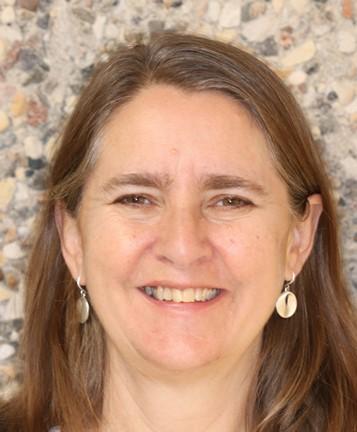White supremacy is one of the foundations of the colonial inheritance.

Learning
I often wrestle with questions of identity, and in particular the reality of my own Whiteness. I’ve been working on issues related to anti-racism and social justice my whole life—from anti-apartheid activism in my late teens and early 20s, to conducting a choir of Caribbean hotel workers in my 30s, to animating song and making music in many diverse contexts with diverse groups, to leading worship in a variety of ecumenical contexts, to teaching and preparing students for diverse ministries.
But I am haunted by my own Whiteness and the privilege it gives me. How can I help to make more space for racialized leadership in the classroom, in church leadership, in musical collaboration, and in other settings? How can I model behaviour and leadership that will help White students and leaders in their own commitments to anti-racism work?
One of the things I have learned through my life journey is that the system of White supremacy categorizes people according to their phenotype (the colour of their skin), and it is one of the foundations of the colonial inheritance. I have come to understand that racism and colonialism are intertwined. That means that unless we confront racism (along with capitalism, patriarchy, and Eurocentrism—the belief that European cultures are superior) as a social construction that was used to facilitate colonial expansion, we are not really getting at the root causes. There is a direct connection between my privilege and historical realities like the Transatlantic Slave Trade, the conquering of the Americas, and the settling of Turtle Island. Even today, Whiteness continues to be a key factor that determines access to education, employment, wealth, social status, and much more.
The more I learn about the complexity of anti-racism work and its connections to (de)coloniality, the more I realize how much more there is to learn! I am learning that the tentacles of the system of White supremacy run deep in me; it is hard to admit it. But there’s also a relief in saying I can’t ever overcome them fully. At the same time, I can and want to continue with my commitments to work against them for the rest of my life. I make these commitments as a member of multiple communities who share these struggles for a vision in which every creature in every place is cherished. And it is in and through relationship that this work becomes possible and can be sustained.
Faith Reflection
Prayer
Compassionate God, strengthen me for the work of building another possible world where your divine intent for life is celebrated and nourished.
Grant me humility to accept that I will make mistakes along the way.
Give me courage to accept my failings, especially the ways in which I am captivated and seduced by the evil system of White supremacy.
Teach me to recognize that so many of the pleasures I enjoy come at a terrible cost for others.
Lead me to seek pleasures that are kind to the earth and gentle to those around me.
Forgive me when I cause hurt, and guide me on a healing path.
Help me to listen—long and hard—to the stories, pain, laughter, and resilience of my racialized friends and colleagues.
More than anything, accompany me as I try over and over again to live into your call to love my neighbour as myself, just as I love you, Holy One.
Bringing It Home
Here are a few suggestions for how you might work with these issues in your context:
- Be honest with yourself and work to untangle the colonial threads of your stories! Spend some time telling stories about how you and your ancestors came to be here. Do so in a way that honours the particular cultures and the complex ethnicities that are in each of us. Also, learn about the traditional land where you live. Whether you and members of your community are Euro-descendent, Indigenous, or racialized, we have complex and beautiful stories to tell.
- Make intentional space! If you are Euro-descendent, try to listen more and talk less. As a person, and maybe as a community, think about what you can give up to make more intentional space for those who are racialized and marginalized in other ways. Consider concrete ways to make reparations and share economic wealth.
- Build relationships! None of us can do this alone.
- Be praxical! Don’t just say the right thing, do the right thing! Praxis means that we reflect on our experience with a view to transforming our world. What can we do to nudge our communities toward racial justice and to decolonize our lives?
Reading and reflection is another way to delve into this. Here are some books I’ve been reading lately:
- So You Want to Talk about Race by Ijeoma Oluo
- White Fragility by Robin J. DeAngelo
- White Benevolence: Racism and Colonial Violence in the Helping Professions, a collection of essays from Canada, edited by Amanda Gebhard, Sheelah McLean, and Verna St. Denis
—Becca Whitla (she/her) is the professor of practical ministry and the Dr. Lydia E. Gruchy Chair in Pastoral Theology at St. Andrew’s College in Saskatoon, Saskatchewan, where she teaches worship and liturgy, preaching, religious education, and practical theology. Her book Liberation, (De)Coloniality, and Liturgical Practices: Flipping the Song Bird was released in December 2020 (Palgrave McMillan). From her White Euro-Canadian settler perspective, she examines ways to decolonize liturgical practices, especially community singing.